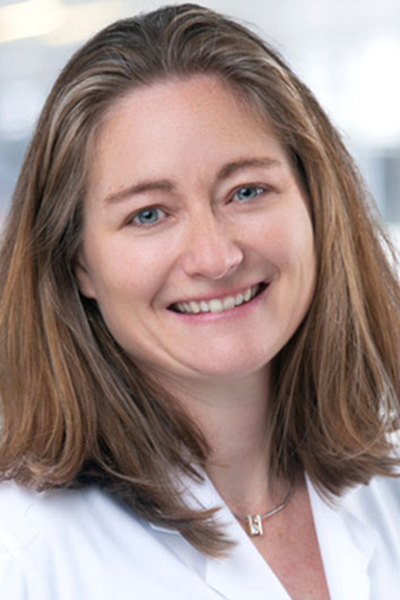Stay on the cutting-edge of breast cancer science and discussion by registering today for the San Antonio Breast Cancer Symposium®, December 10-13 in San Antonio, Texas.
Four days of new and notable programming at the 2024 SABCS® will delve into topics that are relevant to everyone who is focused on breast cancer and premalignant breast disease, from researchers and clinicians to patients and other advocates.

“I feel like that’s what makes the SABCS special,” said SABCS® Program Director Kate Lathrop, MD, of the Mays Cancer Center at UT Health Science Center San Antonio. “We try to address the whole continuum of breast cancer science, treatment, and long-term care. It’s everything from disparities to survivorship to translational medicine.”
The latest program schedule, including speaker names and presentation titles, can be found on the SABCS® website. Here are a few highlights:
Sex, drugs, and rock and roll
Sex, Drugs, Rock and Roll is one of three concurrent special sessions that will kick off the symposium at noon CT on Tuesday, December 10. This brand-new session is more than its eye-catching title — presentations will spotlight important topics that may not always be front and center in discussions about breast cancer treatment.
Speakers will address supplement and cannabis use, explore considerations related to sexual health and exercise, and examine how alcohol intake affects risk of recurrence and treatment outcomes. A panel discussion will provide additional perspectives from breast cancer scientists and a patient advocate.
“I think this will be a popular session,” Dr. Lathrop said. “It’s really going to focus on questions patients ask us that we don’t always know the answer to or don’t know how much data there are behind them.”
Insights from the FDA
FDA Special Session: New Drug Approvals, also at noon Tuesday, will once again allow SABCS® attendees to hear directly from experts with the U.S. Food and Drug Administration (FDA) Office of Oncologic Diseases about specific regulatory decisions.
“The point of this session is to go over the drugs that were approved this year,” Dr. Lathrop said, “and why they were approved in a specific manner, whether that’s a certain indication, in a certain time period during the course of treatment, or certain doses.”
Immediately following the session, at 2 p.m. Tuesday, SABCS® Co-Director Virginia G. Kaklamani, MD, will moderate a clinical workshop in collaboration with the FDA. These two sequential sessions will pair nicely for anyone who is interested in better understanding the agency’s process and philosophy, Dr. Lathrop said.
Spotlight on prevention
Breast cancer prevention was one area that organizers wanted to emphasize across the 2024 SABCS® program, Dr. Lathrop said, and multiple sessions throughout the week will address this timely topic.
Prevention Special Session: Mechanisms of Obesity Related Risk for Breast Cancer and Approaches to Risk Reduction, at noon Tuesday, will look at three different angles: the lifestyle, genetic, and epigenetic interactions in predicting development of obesity and response to calorie restriction and physical activity; achieving sufficient fat loss and metabolic improvement to reduce cancer risk with newer generation GLP-1n and GIP receptor agonists; and the impact and types of exercise and pharmacotherapy in weight loss.
At noon Wednesday, December 11, the session Early Detection will feature presentations on risk-based screening in the average population, novel imaging modalities, and screening for high-risk women.
At 12:30 p.m. Thursday, December 12, The Future of Cancer Genetics Is Here will include discussion of risk prediction models.
Back-to-back sessions on Friday, December 13, will add even more depth to the conversation. New Directions in Breast Cancer Prevention at 12:30 p.m. will highlight the current state of prevention vaccines, the potential for more sophisticated biomarker-driven prevention strategies, and improvements in prevention-oriented clinical trials. A debate session at 2 p.m. will highlight different views on whether all patients should be offered universal germline genetic testing.
Access the 2024 SABCS® virtual platform
Watch any sessions you’ve missed and stay connected with fellow attendees in the online platform of the 2024 San Antonio Breast Cancer Symposium®. Recordings of sessions will be available on demand for registered 2024 SABCS® participants until March 31, 2025.

